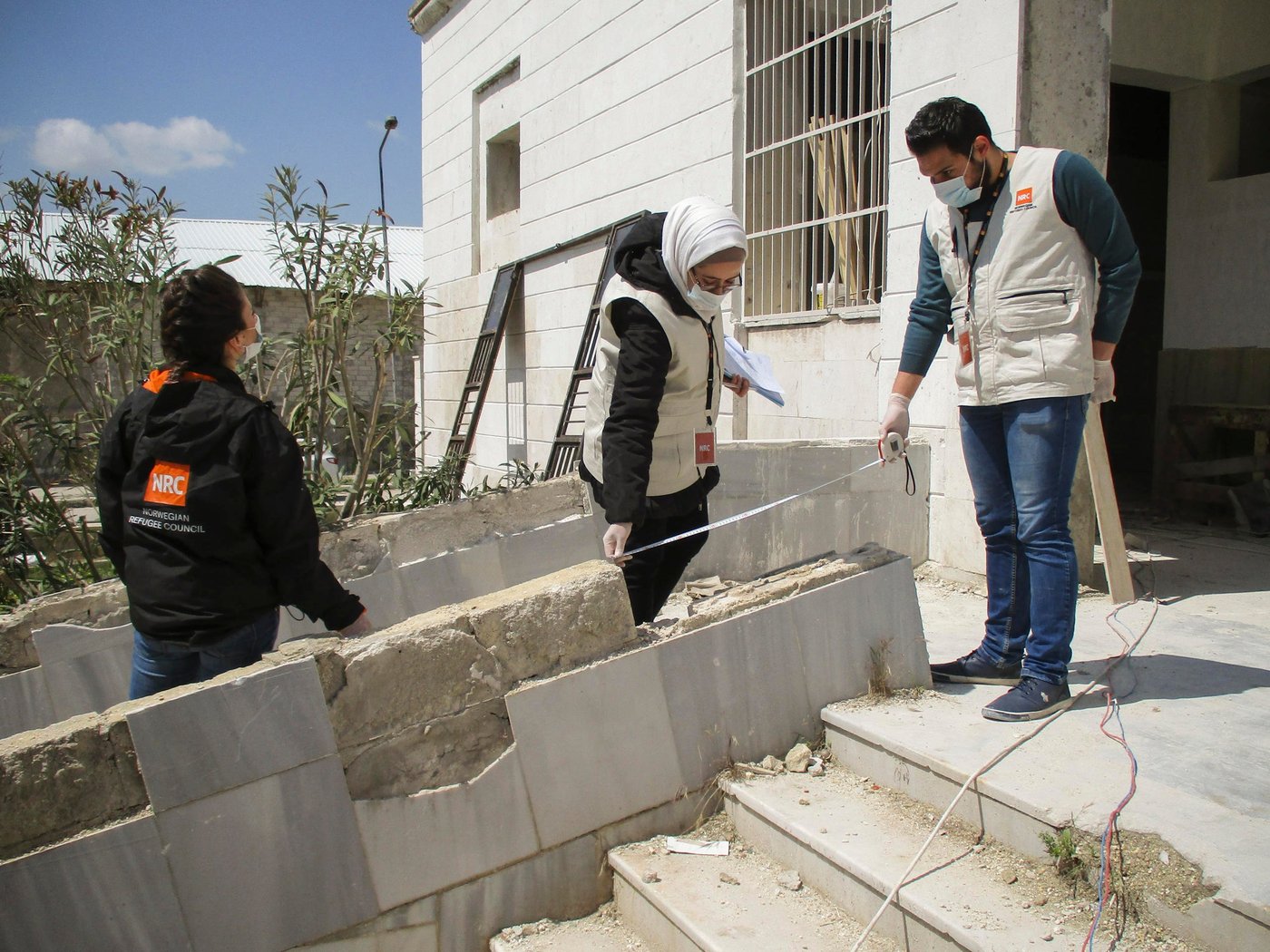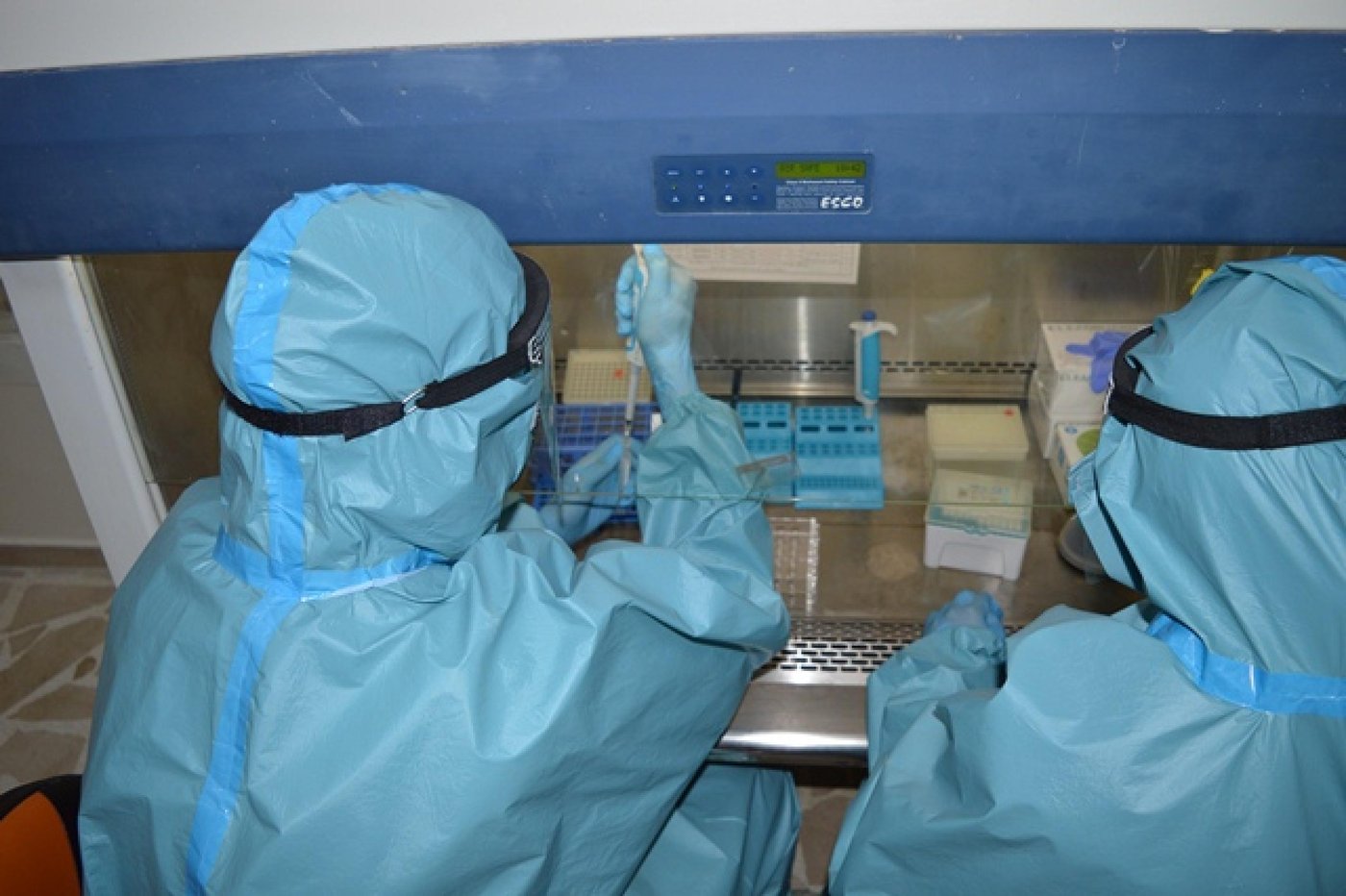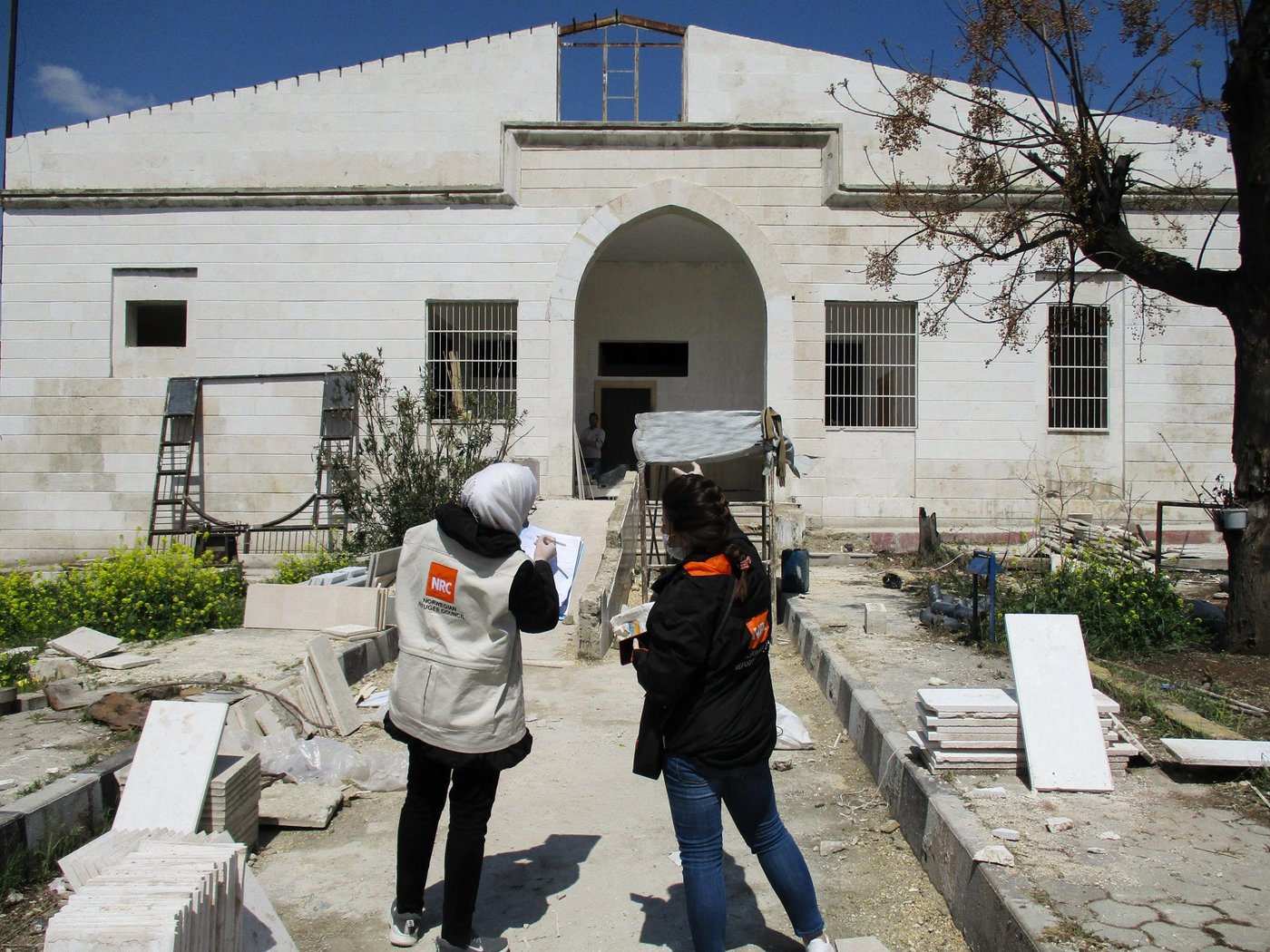Before the war began, the governorate of Aleppo was the most populous in the country, home to around 5 million people. Zahi Azraq Medical Centre once served as a lifeline for those living nearby, but it has been out of action since 2012 due to the conflict.
Having easy access to a nearby hospital is something that many of us take for granted. Knowing that if you get sick or injured, there is a place you can go for help can provide comfort and a sense of security. This is something that the people of Aleppo have not felt for over seven years.

Getting a picture of the pandemic
On 30 March 2020, Syria declared its first official death from the novel coronavirus – Covid-19. The situation initially appeared to be under control as the number of official cases grew slowly. But it became clear that this was not a complete representation as there was only one medical centre in the entire country that could diagnose the disease.
One effective way of stopping the virus’ spread is to have an accurate picture of the number of cases. For an area the size of Aleppo, it was crucial that a testing centre be established. NRC stepped up to help.
“I was proud I was part of the team”
Coordinating with the Department of Health, Aleppo Governorate and Syria Trust for Development, we were able to rehabilitate this life-saving medical centre in just four weeks.
Due to the shortage of electricity supply in the area, we fitted solar panelling and provided a generator, enabling the centre to keep the power on during outages.

Wassim, who is a member of NRC’s shelter team and worked on the rehabilitation of Zahi Azraq, said:
“I am proud that I was part of the team … and that this is the first laboratory in Aleppo city to test for coronavirus. I hope this work will help to alleviate the suffering and break the chain of infection.”
The impact of reliable healthcare
The centre is now open and will be able to serve the 20,000 residents of the area. It provides emergency care, external clinics, X-rays and in-patient treatments.
As of 3 May, the centre has been able to test for coronavirus. This will have a great impact on how the country can control the virus.

But this is not all. Since the reopening of the centre, the area has seen an increase in the number of displaced people returning voluntarily to their homes, demonstrating the importance of healthcare services for creating a sense of safety and stability.
As the number of coronavirus cases continues to rise in Syria, NRC hopes that testing capacity will continue to be expanded and that Syrians across the country will be able to safely access services such as safe, clean water which help keep the virus at bay.


